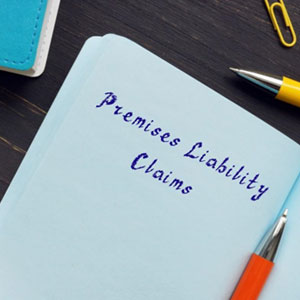Common Questions And Misconceptions Surrounding Filing Premises Liability Claims In Louisiana
Many clients I encounter who seek assistance after experiencing a slip and fall accident are completely unaware of how difficult it is to successfully pursue a slip and fall claim in Louisiana. This is particularly true when the incident occurs in public places like retail stores and restaurants.
Why is this? It’s because Louisiana has specific statutes that impose strict requirements for slip and fall cases that involve merchants. These requirements demand proof not only of an unreasonably dangerous condition but also of the merchant’s knowledge of that condition, whether actual or constructive. Constructive notice is simply a term that means that the condition was there long enough that the merchant should have noticed the unreasonably dangerous condition.
Proving notice can be incredibly challenging, especially when an accident is seemingly the result of something that has recently fallen or spilled on the floor. Without evidence that shows the merchant was aware of the condition or had a sufficient amount of time to identify and address it, it is difficult to succeed in a slip and fall case. Many people I’ve come across throughout my career underestimate the hurdles that this burden of proof brings, as accidents often occur in ways that allow merchants to claim ignorance or insufficient time to rectify the situation before the slip and fall.
Common Causes And Injuries Associated With Premises Liability Claims
Most slip and fall cases involve liquids or other similar substances that are on the ground. On the other hand, trip and fall cases often involve objects that protrude into walkways or items carelessly left on the ground or floor. A good example of this is a piece of construction equipment left in a walkway that someone trips over.
Many people suffer from back or leg injuries from slip or trip and fall incidents. Trip and fall accidents, in particular, tend to cause injuries to the ankle or feet.
Potentially Liable Parties And Fault
Owners of the property where the incident occurred can be held liable in both slip and trip and fall cases. If they have leased their property to another business, then the business in control of the property would generally be on the hook for compensating the injured plaintiff.
To pursue a slip or trip and fall claim, you have to have slipped or tripped on the actual property in question. People often slip on the sidewalk in front of a store, for example, and will want to file a claim against the store. More often than not, however, this outside area is not under the ownership or management of the store, and so the store is not responsible for the condition that caused the accident.
Louisiana is a comparative fault state. What this means is that a plaintiff can be assigned a percentage of fault for the accident. This degree of fault can range up to one hundred percent. If you’re found one hundred percent at fault, you won’t be able to recover any compensation.
Let me unpack this in slightly more practical terms. Let’s consider a somewhat common scenario — someone slipping and falling at a restaurant. The staff at the restaurant had just mopped a section of the floor after another customer spilled a drink and put up yellow wet floor signs. In this case, the restaurant would likely argue that the plaintiff is primarily at fault if not completely. They’ll claim that, had the person heeded the yellow wet floor signs, they would have avoided the area and not slipped.
Potential Damages in Premises Liability Cases
There are various types of damages you can seek as a plaintiff in a premises liability case, including:
Special Damages
These encompass reimbursement for medical expenses incurred due to the injuries sustained in the accident, including out-of-pocket costs related to medical care.
General Damages
This covers compensation for pain and suffering endured as a result of the injuries, as well as mental anguish and emotional distress caused by the incident.
Economic Damages
If the injuries you suffer from your accident are severe enough, you may be out of work for a significant period of time. This type of damage takes this into account, and is designed to cover the lost wages and other financial losses you incur as a result.
Calculating Settlement Offers
Settlement offers in premises liability cases are typically calculated by considering both special and general damages and then arriving at a combined figure. Special damages are calculated first. Then, general damages are assessed and added into the equation to ensure you receive the total compensation deserved.
If your injury is such that you’ll incur medical expenses that extend far into the future, they will need to be factored into your settlement offer. Typically, these costs are expressed in terms of their present dollar value. Calculating this can be fairly complicated, requiring you to determine the current value of future expenses through economic calculations. Consulting with an economist or accountant may be necessary to accurately assess your future medical costs and their present value to include in your settlement offer.
For more information on Filing A Premises Liability Claim In Louisiana, a free initial consultation is your next best step. Get the information and legal answers you are seeking by calling (504) 527-8767 today.
